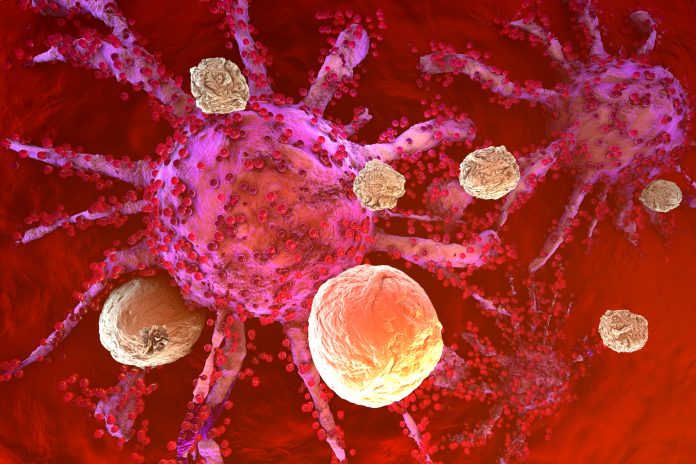
A novel topical immunotherapy developed by researchers at Massachusetts General Hospital has shown promising results in preventing the development of squamous cell carcinoma (SCC), the second most common type of skin cancer. This therapy, which combines a vitamin D analog with chemotherapy, is the first to activate parts of the adaptive immune system, notably CD4+ T helper cells, that are also targeted in traditional cancer immunotherapies. The results of the research, published in the Journal of Clinical Investigation, showed that the topical treatment had benefits lasting five years after treatment and presents a new approach to target precancerous skin lesions for the prevention of the development of skin cancer.
“One of the unique challenges with squamous cell carcinoma is that individuals who develop it are at an increased risk of developing multiple new lesions over time. This makes prevention an essential part of care,” said senior author Shawn Demehri, MD, PhD, a clinical investigator and associate professor in the Cutaneous Biology Research Center at Mass General. “We found that this drug combination prevents cancer through a mechanism distinct from those used by current immunotherapies, suggesting that these drugs may treat and prevent cancer via distinct mechanisms.”
SCC often arises from actinic keratosis (AK), precancerous patches caused by sun damage. Although treatments currently exist to eliminate AKs, none offer long-term protection against SCC, making prevention an important element to address for this disease. The new treatment is a combination of calcipotriol, a vitamin D analog, and 5-fluorouracil (5-FU) a chemotherapy drug. It showed the ability to both clear precancerous lesions and prevent the development of SCC.
The therapy was tested in an open-label clinical trial involving 18 patients with qualifying precancerous skin lesions. Participants applied a treatment of 0.0025% calcipotriol and 2.5% 5-FU to affected areas—including the face, scalp, and upper extremities—twice daily for six days. Skin biopsies were collected before treatment, one day after completing treatment, and eight weeks after completing the treatment.
The topical treatment eliminated 95% of precancerous spots on the face and all facial lesions in seven of 10 patients. It also eliminated 82% of spots on the scalp and 65% and 68% of spots on the right and left upper extremities, respectively. Limited side effects were some redness and inflammation around the spots, but all reactions resolved within four weeks of ending treatments.
To discover the mechanism of action, Demehri’s lab induced a mouse model for tumor development to test the new therapy. The team found that the therapy works by inducing the production of thymic stromal lymphopoietin (TSLP) in the skin, which triggers an immune response against the affected tissue. This response is primarily mediated by CD4+ T helper cells, particularly the Th2 subset, which is activated by TSLP and contributes to tumor suppression in precancerous areas.
“These findings suggest that immune responses activated by Th2 cells are crucial for eliminating precancerous lesions and preventing the progression to cancer,” the researchers wrote. The treatment’s mechanism involves not just immune activation but also a form of cell death called toxic autophagy and anoikis, followed by apoptosis, which selectively targets the precancerous cells without harming healthy skin.
The success of this therapy in preventing SCC could have significant implications not just for skin cancer, but for other types of cancer as well. “This trial demonstrates that immunology can be a powerful force in cancer prevention, much like it transformed cancer treatment over the last decade,” Demehri said. The team plans to launch a multi-center clinical trial to test whether immunocompromised individuals, such as those who have undergone an organ transplant and are at greater risk for skin cancer, could benefit from this therapy.
The researchers are also exploring whether this approach could be adapted to prevent other cancers, including oral, breast, and anal cancer, by targeting similar mechanisms in different tissues.









![Best Weight Loss Supplements [2022-23] New Reports!](https://technologytangle.com/wp-content/uploads/2022/12/p1-1170962-1670840878.png)




